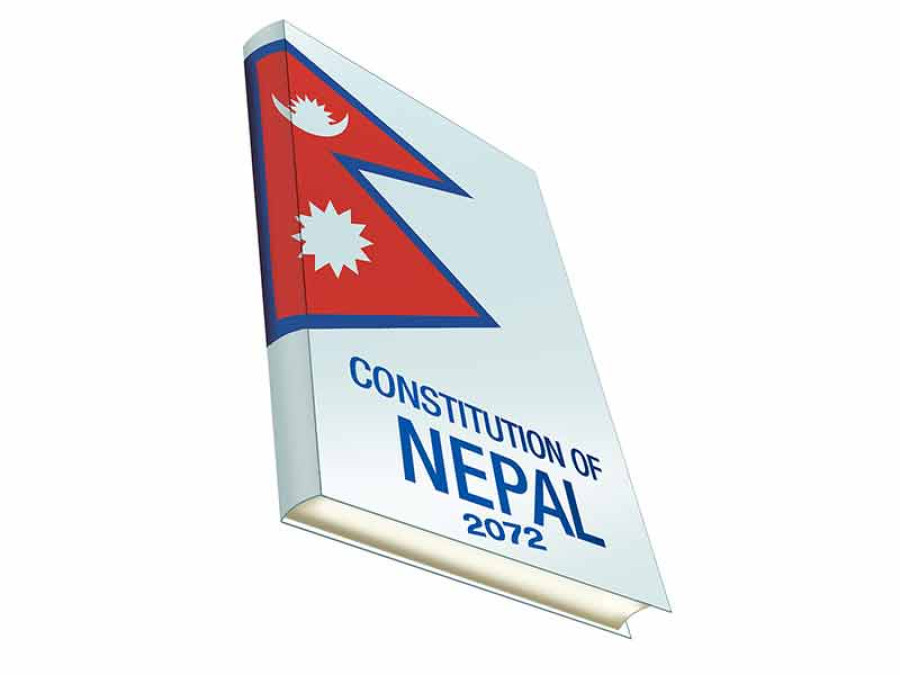Miscellaneous
Over 100 new laws required
Parliament will need to legislate more than 100 new laws to begin full implementation of the new constitution—a majority of them related to federalism.
Binod Ghimire
Parliament will need to legislate more than 100 new laws to begin full implementation of the new constitution—a majority of them related to federalism.
Around a third of the total 308 Articles in ‘Constitution of Nepal 2015’ need either new Acts and regulations or amendment in the existing legal provisions before they could be implemented.
The new legal provisions are required for the implementation of around half of fundamental rights, directive principles, state restructuring and various provisions related to state, provincial and local government.
The new constitution has repealed the Interim Constitution 2007 after President Ram Baran Yadav announced its commencement on Sunday evening.
Tek Prasad Dhungana, former legal advisor to Constituent Assembly (CA) and spokesperson at Ministry of Law and Federal Affairs, said it is necessary to formulate over 100 new laws as dozens of Articles or Clauses in the current constitution have explicitly mentioned that a new law will be needed for their implementation.
The constitution has mentioned that the provisions of positive discrimination for the empowerment of marginalised communities, some provisions of right to justice, right to property, free education up to secondary level and special scholarships for students from marginalised communities to higher education, among others, will be implemented as per the new laws.
“A majority of laws related to Election Commission and Civil Service Commissions also have to be amended or replaced,” said Dhungana.
The constitution explicitly mentions that there has to be new laws for the election of President, Vice President and Prime Minister and their oath. However as per the transitional provisions, their election will be held as per Interim Constitution within a month and seven days respectively.
Dhungana said at least eight new Acts will be required for the Election Commission alone for the election of federal parliament, provincial assemblies, local bodies.
Similarly, new Acts will be needed to set up seven inclusive commissions envisioned by the new constitution for the empowerment of the marginalised community. As per the demand from different communities the new statute envisions to have Tharu, Dalit, Women, Muslim, Inclusive, Madhesi and Adibasi Janajati Commissions to address the grievances of the marginalised communities.
According to Dhungana, a majority of the new Acts or amendment on existing ones have to be drafted by the Law Ministry while some will be drafted by the concerned ministries under its consent. The Acts come into effect after Parliament endorses them.




 9.12°C Kathmandu
9.12°C Kathmandu










